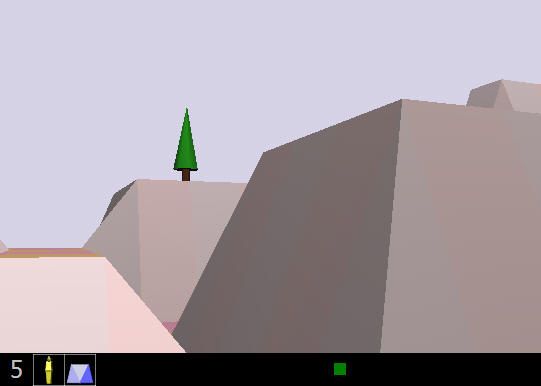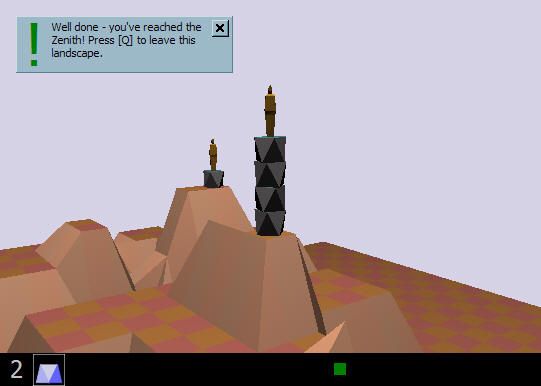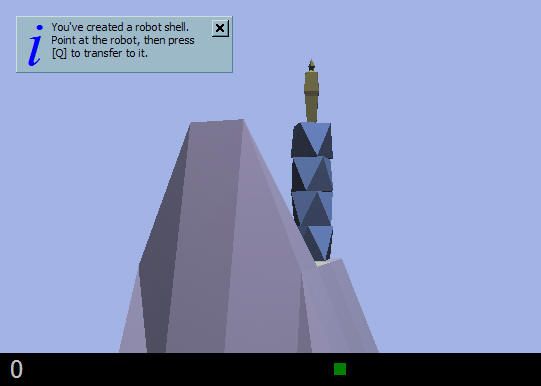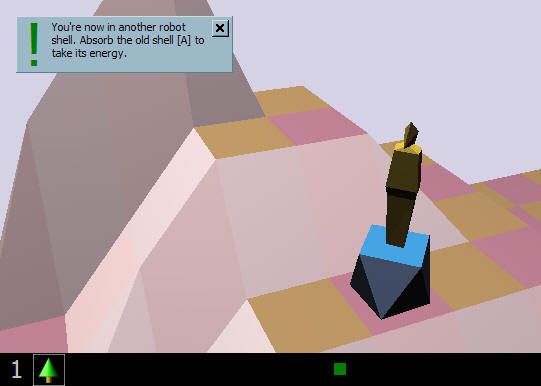Retro Replay Review
Gameplay
Zenith’s gameplay captures the essence of the original Sentinel while modernizing its control scheme and pacing. You begin each level in a precarious valley, your consciousness bound to a basic host shell. Energy is your lifeline, and every action—raising terrain blocks, creating new shells, or absorbing trees—consumes precious reserves. This constant tug-of-war between exploration and conservation keeps you alert from the very first minute.
(HEY YOU!! We hope you enjoy! We try not to run ads. So basically, this is a very expensive hobby running this site. Please consider joining us for updates, forums, and more. Network w/ us to make some cash or friends while retro gaming, and you can win some free retro games for posting. Okay, carry on 👍)
The integration of mouselook with traditional keyboard inputs offers both precision and nostalgia. Newcomers can rely on on-screen prompts that guide you through the basics of activating energy nodes, scaling cliffs, and evading the Sentinel’s gaze. Veterans of the original will appreciate the option to disable these hints for a purist experience. Controls feel responsive and intuitive, making it easy to focus on strategic planning rather than wrestling with awkward keybinds.
Randomly generated landscapes add significant replay value. Each difficulty level not only adjusts energy availability and Sentinel aggression but also alters terrain density and layout. No two playthroughs feel the same, and as you climb higher you’ll constantly reassess whether to push forward immediately or retreat, reorganize your shells, and conserve more energy for the ultimate assault on the Sentinel’s pedestal.
Time pressure and resource management combine to create a tense, thought-provoking challenge. Missteps carry real consequences—you can’t just reload infinitely without a sense of urgency. This makes victories all the sweeter when you finally absorb the Sentinel and clear a level, rewarding patience, foresight, and quick decision-making in equal measure.
Graphics
Visually, Zenith embraces a minimalist polygonal aesthetic that echoes the original 1980s charm while incorporating smoother animations and richer color palettes. Flat-shaded hills and angular trees pop against gradient skies, balancing simplicity with a modern polish. The trade-off between graphical fidelity and performance ensures the game runs effortlessly on most systems without sacrificing visual clarity.
Lighting effects are subtle but effective: dawn and dusk cycles offer warm oranges and cool blues that enhance the atmosphere. Shadows cast by the Sentinel and nearby trees stretch across the terrain, lending a dynamic quality to each scene. Although there are no flashy particle effects, the understated art direction places emphasis on the strategic elements—what you see is precisely what you must navigate and manipulate.
The user interface remains clean and unobtrusive. Energy levels, current shell height, and available actions are displayed in a transparent HUD that never obscures your field of view. Contextual tooltips appear only when you need them, and vanish once you’re comfortable. This design choice keeps the focus on the landscape and Sentinel interactions, rather than cluttering the screen with distracting overlays.
Overall, Zenith’s graphics strike a fine balance: they’re faithful to the spirit of Geoffrey Crammond’s original Sentinel while providing enough polish to feel at home on modern desktops. The result is a visual package that is both evocative and functional, reinforcing the game’s cerebral, strategy-oriented core.
Story
Story in Zenith is elegantly sparse, mirroring the original Sentinel’s minimalist narrative style. You are a disembodied consciousness thrust into a succession of hostile landscapes, each teeming with potential energy sources and the ever-watchful Sentinel towering above. The lack of overt exposition encourages you to piece together the lore through gameplay—who or what the Sentinel is, why you must absorb it, and what fate awaits you beyond each level.
Environmental storytelling plays a subtle role. The barren valleys, scattered growths of energy-producing trees, and colossal heights imply a world shaped by a powerful overseer. As you advance, the terrain becomes progressively more surreal: floating islands, narrow ridges, and sweeping chasms hint at a reality governed by rules that differ from our own. This abstract approach stirs curiosity and lends a dreamlike quality to your ascent.
Unlike narrative-driven titles, Zenith trusts players to find meaning through challenge and discovery. Every absorbed Sentinel carries weight, suggesting a cycle of conquest and rebirth. The gradual reveal of tougher landscapes and more menacing Sentinels acts as a silent storyteller, conveying the magnitude of the task at hand without a single cutscene or dialogue prompt.
This interpretive storytelling model aligns perfectly with the game’s mechanics. As you manipulate the environment and wrest energy from the land, you simultaneously uncover the unspoken narrative of power, survival, and transformation. It’s a testament to how minimalism can evoke richer lore than pages of text or lengthy backstories.
Overall Experience
Zenith offers a cerebral adventure that rewards careful planning as much as quick reflexes. The blend of strategy, risk management, and exploratory verticality creates a distinctive gameplay loop. Each success—scaling a towering peak or outmaneuvering the Sentinel’s gaze—feels hard-earned and deeply satisfying. The freeware nature of the remake only sweetens the deal, granting easy access to this timeless experience.
Accessibility options, such as adjustable difficulty levels and togglable hints, ensure that both newcomers and series veterans can find the right balance of challenge and guidance. Whether you’re intrigued by retro game design or drawn to minimalist strategy puzzles, Zenith accommodates a range of playstyles without compromising its core identity.
The game’s pacing can be brisk or methodical, depending on how aggressive you choose to be with your energy expenditure. High-difficulty runs deliver nail-biting tension, while easier settings allow for a more contemplative, almost meditative approach to world traversal. This versatility enhances replayability, inviting you to revisit levels armed with new tactics and confidence.
In sum, Zenith stands as a shining example of how classic game design principles can thrive in a modern context. Its focused mechanics, timeless aesthetic, and thoughtful presentation combine to produce an experience that’s both challenging and invigorating. For anyone seeking a streamlined strategy puzzle that demands both foresight and adaptability, Zenith is an exceptional—and free—offering.
 Retro Replay Retro Replay gaming reviews, news, emulation, geek stuff and more!
Retro Replay Retro Replay gaming reviews, news, emulation, geek stuff and more!








Reviews
There are no reviews yet.